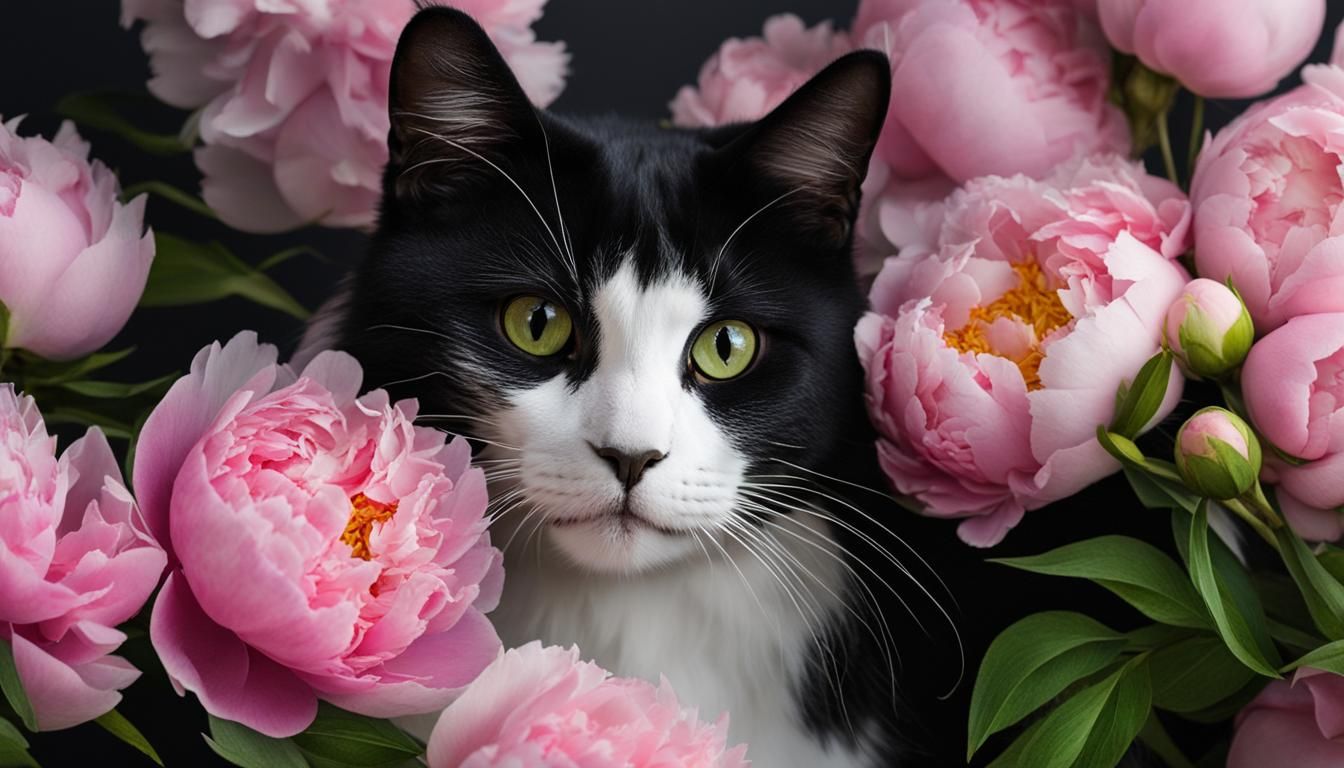Are Peonies Poisonous to Cats? A Guide for Cat Owners

If you’re a cat owner with a love for gardening, you may be wondering if your favorite blooms are safe for your furry friend. Peonies (Scientific Name: Paeonis officinalis), with their lush petals and vibrant colors, are a popular choice for many gardens. However, it’s essential to know whether these beautiful flowers pose a risk to your cats.

Understanding the Risks
Peonies are indeed toxic to cats. The primary culprit is a toxin called paeonol, which is found in the bark of the peony plant. While peonies are not considered highly toxic, ingestion can still lead to uncomfortable symptoms and potential health issues for your cat.
Signs of Peony Poisoning in Cats
Recognising signs of plant poisoning in cats is imperative for timely intervention. The key symptoms to look out for include:
Subtle indicators might also appear, such as increased thirst or changes in behaviour. These signs require immediate attention, underscoring the seriousness of peonies’ impact on feline health.
Symptoms of Peony Poisoning in Cats
If your cat ingests any part of a peony, they may exhibit the following symptoms:
- Vomiting: One of the most common signs of plant toxicity, vomiting helps expel the ingested material from your cat’s system.
- Diarrhea: This can occur as the cat’s digestive system reacts to the toxin.
- Lethargy: A lack of energy or unusual tiredness is a sign that your cat’s body is dealing with the toxin.
- Drooling: Excessive salivation can be another indicator of plant poisoning.

What to Do if Your Cat Eats a Peony
If you suspect your cat has ingested a peony, it’s essential to act quickly:
- Remove Access: Ensure your cat can’t eat any more of the plant.
- Contact Your Veterinarian: Provide details about the ingestion and symptoms. They may recommend bringing your cat in for an examination or monitoring symptoms at home.
- Follow Veterinary Advice: Your vet might suggest inducing vomiting or administering activated charcoal to prevent further absorption of the toxin. Do not attempt these treatments without professional guidance.
Preventing Peony Poisoning
The best way to protect your cat is to prevent access to peonies and other toxic plants:
- Indoor Plants: Keep peonies out of your home or in areas your cat can’t reach.
- Outdoor Gardens: Consider fencing off garden areas with peonies or using deterrents to keep your cat away.
- Alternative Plants: Opt for cat-safe flowers and plants such as spider plants, Boston ferns, or African violets.
Cat-Safe Alternatives to Peonies
If you love the look of peonies but want to ensure your garden is cat-friendly, consider these safe alternatives:
- Roses: With their variety of colors and similar lush appearance, roses are a beautiful and non-toxic option for your garden.
- Sunflowers: These bright, cheerful flowers are safe for cats and add a splash of color to any garden.
- Zinnias: Easy to grow and available in many colors, zinnias are another cat-safe option that can provide the visual appeal of peonies.

Paeonia officinalis, are commonly grown
Paeonia officinalis, commonly known as the common peony or garden peony, is not native to the United States. It originates from southern Europe and has been cultivated in gardens around the world. However, due to its popularity as an ornamental plant, it can be found growing in various states across the US where it has been planted in gardens and landscaped areas.
While Paeonia officinalis itself is more commonly found in cultivated settings rather than naturalized in the wild, peonies in general, including other species, can be found in many regions across the US. Some states where peonies, including Paeonia officinalis, are commonly grown include:
- California
- New York
- Illinois
- Ohio
- Michigan
- Pennsylvania
- Massachusetts
- Oregon
- Washington
These states have suitable climates for growing peonies, particularly in gardens and cultivated landscapes. However, Paeonia officinalis does not typically grow wild in the US; its presence is mainly due to horticultural activities.
Conclusion
While peonies are a stunning addition to any garden, they pose a risk to our feline friends. By being aware of the symptoms of peony poisoning and taking steps to prevent exposure, you can enjoy a beautiful garden that’s safe for your cats. Always consult your veterinarian if you suspect your cat has ingested a toxic plant and consider cat-safe alternatives to keep your garden both beautiful and pet-friendly.










